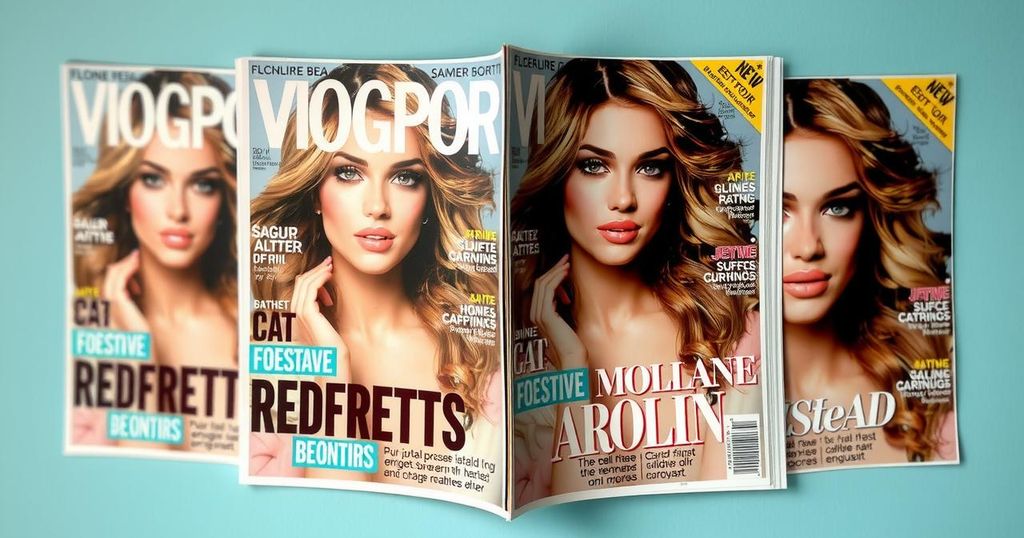Stacey Solomon Takes on the Gossip Magazine Circus

Stacey Solomon graced the cover of Now Magazine, but it was marred by negative social media comments calling her “boring” and “cheap”. The backlash prompted support from various celebrities and criticism of the toxic nature of gossip publications. Critics argue that such magazines perpetuate unhealthy standards for women, reinforcing shame instead of promoting body positivity. Former industry insiders lament the aggressive tactics of today’s tabloids, and the need for change is clearer than ever.
In a scandalous turn of events, this week’s Now Magazine flaunted a cover that was, well, less than flattering for realityTV star Stacey Solomon. Beneath a picture of her strutting her stuff in a bikini, the words “boring”, “desperate”, and “cheap” reared their ugly heads. These delightful gems were taken from social media comments – because who doesn’t love a little online bullying sprinkled with some body positivity?
Stacey wasn’t here for it, calling the cover “the meanest thing I’ve ever seen”. Support for her came pouring in from friends like Jennifer Saunders and Stephen Fry, proving that even celebrities can have a soft spot for kindness. Meanwhile, Now Magazine swiftly attempted damage control, distancing themselves from the negative comments while outright apologising to Solomon. They might as well have sent her some flowers and chocolate while they were at it.
Actress and fierce advocate for women’s rights, Jameela Jamil, didn’t hold back and slammed gossip mags for fostering a “toxic patriarchal narrative” that leaves women wallowing in shame. “They are grossly irresponsible,” she quipped, and who could argue with that? After all, when did shaming someone become a form of entertainment?
Jessica Barrett, a former mag insider who threw in the towel because of the degrading coverage, echoed similar sentiments, lamenting how magazines have preyed on women’s insecurities. “The constant assessment of weight loss and gain – yikes!” she recalled, reminiscing with a cringe.
As for editors like Lisa Byrne at OK! Magazine, they are fighting a ‘lose-lose’ battle with the online world. With celebrity gossip available at the click of a button, it’s not just print sales suffering; it’s also the ethics of journalism going down the drain faster than a soggy biscuit in tea. Today’s cut-throat magazine industry, Byrne warns, is beginning to look like a hamster wheel of doom for editors trying to pay the rent.
In the simmering pot of modern media, it seems the big question remains: how many chatty gossips will it take for someone to pull the plug on this toxic trend? With advocates like Stacey leading the charge for self-acceptance, perhaps change is just around the corner. Let’s hope that corners come with some glitter!
The world of gossip magazines has been under scrutiny for its negative impact on women’s body image and self-esteem. With covers often highlighting perceived flaws alongside harsh judgments, public figures like Stacey Solomon have become unwitting victims of a culture that thrives on sensationalism. This situation has stirred discussions about the responsibility of media outlets in shaping societal attitudes toward women’s bodies and the harmful narratives that often circulate within.
In the grand scheme of things, the tale of Stacey Solomon and her dubious magazine cover shines a spotlight on the toxic nature of gossip media. It underlines the urgent need for a cultural shift towards positivity and support rather than cheap shots at personal flaws. As humourless as gossip can be, thanks to spirited advocates like Jameela Jamil and Jessica Barrett, we can look forward to a brighter, kinder tomorrow – minus the nasty headlines, of course!
Original Source: www.bbc.com




